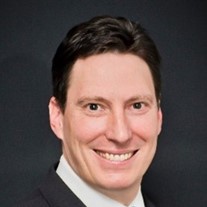Interview with ACSL Board Member Mr Julian Widdup
Canberra-based Board Director Mr Julian Widdup joins the Board of ACSL with a background in executive leadership within the finance, investment and risk management sectors. A significant supporter of charities and not-for-profit sector, Julian currently sits on the boards of a number of Catholic entities, including Catholic Schools NSW. With strong business acumen and risk management capabilities, Julian is motivated to make a difference by delivering solutions which are valued by stakeholders.
What has drawn you to this role on the ACSL Board?
This role is an opportunity for me to support society through the delivery of safeguarding solutions. The Royal Commission into Institutional Responses to Child Sexual Abuse brought to light the shocking abuse that occurred within the Church. There’s certainly been a dark history and it’s vital that the Church now supports victims and ensures such terrible things never happen again. For me this is really an opportunity to improve our Church and to support survivors.
solutions. The Royal Commission into Institutional Responses to Child Sexual Abuse brought to light the shocking abuse that occurred within the Church. There’s certainly been a dark history and it’s vital that the Church now supports victims and ensures such terrible things never happen again. For me this is really an opportunity to improve our Church and to support survivors.
What type of work background do you come from? What makes you passionate about this work?
In terms of my background, I’ve spent a lot of my career in finance and investment, working as an actuary and economist. Since 2017 I have worked part-time as a non-executive director for a number of boards. I’ve spread my board roles across commercial, government and not-for-profit organisations including Church-related entities.
I currently serve on the boards of the ASX listed Rural Funds Group, Screen Canberra and the Canberra Museum and Art Gallery. In terms of work with the Catholic Church, I have board roles with the Australian Catholic Superannuation Retirement Fund, the Australian Catholic University, and Catholic Schools NSW.
Particularly relevant to this role with ACSL, I previously led a major financing review for the Australian Catholic Bishops Conference. I was subsequently invited to be involved in the Safeguarding Review Committee of national safeguarding and professional standards arrangements for the Church, which ultimately led to the formation of ACSL.
My work is quite diverse and I’m passionate about giving back and making a difference where I can.
How has your prior work experience shaped how you approach working in this critical role for the Church in Australia?
ACSL has a diverse board and each director contributes something unique. My own skillsets focus on governance, finance and risk management rather than traditional safeguarding and it can be useful to consider safeguarding through those lenses. Safeguarding needs to be financially sustainable, fit for purpose and ultimately valued by the stakeholders, including children, adults at risk and survivors, who benefit from ACSL’s work. Looking at safeguarding through the lens of risk management, is about recognising and analysing risks, thinking about improvements to controls processes, mitigating risk and implementing policies and procedures to ensure future harm is avoided.
Ultimately, safeguarding is about protecting vulnerable people. We must accept past failures, minimise the risk of future abuses, mitigate fully the impacts on survivors, and action all future complaints swiftly and effectively.
How do you see the conversation around safety and protection for adults at risk changing in Catholic communities? What role does ACSL have to play in that evolving conversation?
The mindset around safeguarding within the Church is advancing and we need to maintain stakeholder momentum. It’s no good doing things that we think are sufficient or comprehensive if they’re not valued by the community and ultimately by those who have been impacted and their families. If we’re not serving children, adults at risk and survivors at the end of the day through improved processes, then we’re not achieving what we need to. That’s the change that needs to occur with ACSL taking a leadership role in this area.
Looking forward, what still needs to change in order to create safer Catholic communities? How do you envision ACSL supporting this change?
The Church needs to continue engaging broadly with children and adults to fulfil its mission. We must do this safely and hear the voices of children and adults at risk in order to develop improved solutions. It’s no good for the Board of ACSL to be making suggestions for children or adults at risk if we, as a Church, are not at the coalface engaging with people, and building a Church that’s inclusive, welcoming and growing. ACSL has an important role to play in this respect, in supporting people to feel safe and welcomed. ACSL’s core role will be assisting Church entities effect transparent and accountable practices to create safe environments. I’m certainly looking forward to supporting ACSL in this endeavour.

